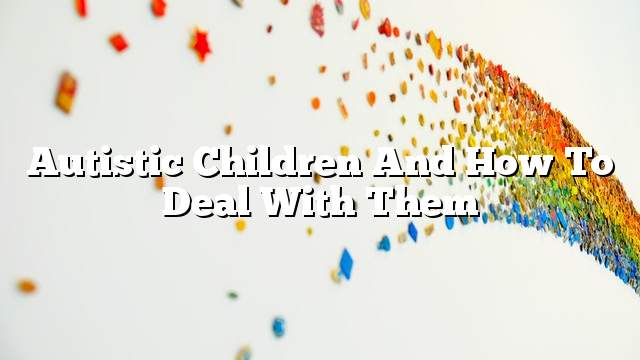Autism
Autism is a disease in which children are infected. The child has little interaction with others around him and has little communication and continues with frequent and restrictive behavioral patterns. This condition is diagnosed in the child since the age of three years. Symptoms become obvious to the child. Brain, and change it to connect neurons and their regularity.
Symptoms of autism
- The symptoms of autism shrink the child on himself, not aware of the feelings and feelings of others, and prefer to play alone and does not respond to his guidance, and does not like direct visual communication.
- The autistic child is late to speak in comparison to children in his or her age. He can not pronounce a sentence he used to speak in the past. He communicates with others visually or speaks unintelligibly when he wants something. He usually speaks in voice like the voice of a robot. He may repeat words and shake or spin a lot. Objects or games are in the form of piles or rows, and a child does not like autism to change furniture or his room.
How To Deal With Autism Child
There are a range of tips to deal with autistic children and these tips are:
- To take into account the psychological state of the child; the mother must know what pleased him and what is sad and careful not to keep him alone for a long time, and talk to him about what goes on inside.
- To make sure that the child communicates with those around him, to communicate visually and verbally, to encourage him to do so, to encourage him with gifts and to speak and ask for what he wants.
- Make the child communicate and play with children of his age; autistic children prefer to deal with adults.
- Preventing and mobilizing the child from the typical movement and punishing him whenever he does. Every child has a typical movement when disturbed by something.
- Encourage the child to do a work or initiative and instill confidence in him, and encourage him to rely on himself.
- Working on the education and training of the child to defend himself; the child autism can not identify sources of danger, or to defend itself; it is important to teach the child sources of danger and how to deal with them.
- Training the child to play to free energy and to relieve disturbances, and teach him how to enjoy playing, and prefer the participation of the mother to her child in the game to love it.
- Registration of the child in a special center or school for autism, taking care to keep track of the child and visiting the school, and follow the same pattern in dealing with the child in school or home.
- Training the child not to follow a certain routine, accept change, and how to deal with it and deal with reality as it is, and teach the child how to do the tasks entrusted to him.
